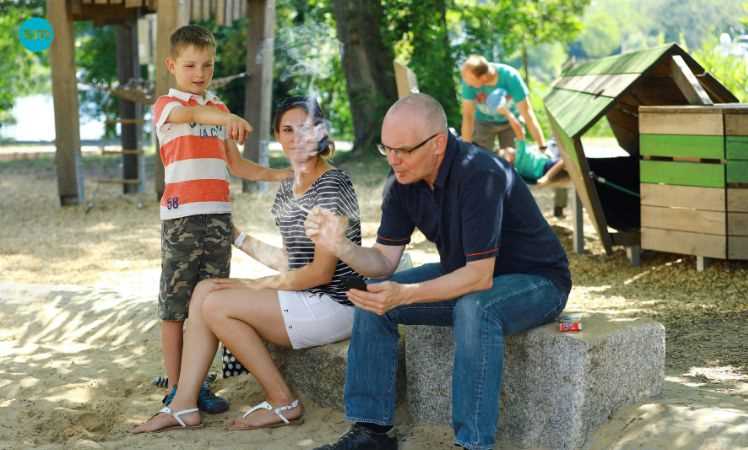Raising A Child With Autism As A Single Parent

Last Updated on January 19, 2024 by Lori Pace
As a single parent, raising a child with autism can sometimes be daunting. Responsibility for your child’s well-being rests squarely on your shoulders, and your role as their sole caregiver requires immense patience, dedication, and perseverance.
To ensure your child receives the care and attention they need to thrive, you must be able to navigate the unique challenges of raising an autistic child as a single parent. Several support systems will help you overcome these obstacles, from courses on crisis intervention to autism therapy, but it helps to be thoroughly informed before using these solutions effectively.
The symptoms, causes, and treatment options for autism spectrum disorder (ASD) will always be unique for each child. Educating yourself properly on the nuances of ASD is a good start and will provide a solid foundation for a healthy relationship.
Learning About ASD
ASD is a complex developmental disability that manifests in myriad ways. Generally speaking, autistic children tend to struggle with communication, unfamiliar environments, and social interaction. They can also exhibit repetitive behaviors and often restrict themselves to specific interests.
Every child with ASD develops a unique combination of these issues. The more this disability affects your child, the better equipped you will need to be to avoid unnecessary stress, manage your child’s needs, and provide them with the best possible care.
Don’t hesitate to seek professional help when you need it. Ask a medical expert about the best ways to manage your child’s symptoms. Going for checkups means you can monitor your child’s development more closely, allowing you to adapt when a chosen method isn’t working out as planned. Take the time to learn about effective therapy techniques such as Applied Behavior Analysis (ABA), currently the only ASD treatment method endorsed by the US Surgeon General and federal agencies. Similarly, life skill courses like Crisis Prevention and Intervention (CPI) will also prove beneficial, especially if your child struggles with emotional control.
Communicating With Your Child
Because ASD children have varying needs, effective communication is a unique skill that can only be learned through exposure and practice. Still, there are general tips for interaction that can be useful when you are struggling to understand each other. You can use your child’s name often to keep their attention, for instance, or adjust the speed of your pronunciation.
If language gets in the way of honest communication, simple gestures, and visual signals might be better. You always want to minimize background noises and distractions and reinforce positive behavior often through encouragement and compliments.
Connecting with your child will improve their social skills and reduce the chances of either of you getting frustrated. However, ASD can cause behaviors that clash with clear communication, such as stimming or having meltdowns. In such cases, consulting with a medical professional is necessary to ensure your child’s and others’ safety.
Establishing Healthy Habits
Studies have shown that a predictable routine reduces the likelihood of anxiety-driven behavior. Creating a daily schedule with regular meal times, bedtime, and playtime establishes a structure and provides stability, allowing your child to feel secure and comfortable in their environment.
Most autistic children thrive on predictability and consistency. They can also be hypersensitive to external stimuli, so you want to minimize the likelihood of sensory overload by creating a calm and predictable home environment.
Along with a schedule, this can include using low lighting and soft colors around your home, having noise-canceling headphones available, and ensuring your child has a space to call their own.
Creating A Support Network
Being a single parent is isolating, and an ASD child can compound the issue further. Make every effort to build and maintain a healthy support network for you and your child. Whether it’s friends, family, or community support groups, reaching out and leaning on others when you’re feeling overwhelmed is invaluable.
Your network should be able to offer practical advice and emotional support when you need it, and sometimes it’s helpful to just talk to someone who can relate to what you’re going through. For example, autism support groups provide opportunities to share similar experiences and find common ground, which is something friends and family might not be able to offer.
An aspect of support often overlooked is financial assistance. If you are struggling to keep your expenses in check, it might be worthwhile to look at financial aid options such as Carer’s Allowance and Disability Living Allowance. These funds will lighten the financial burden of being a single parent and allow you to focus on supporting your child’s development.
Being The Best You
Last but not least, don’t forget to take time for yourself and look after your health. Working full-time and looking after a special needs child makes this challenging, but that just makes it more critical to practice self-care properly.
Hiring a professional babysitter or a nurse is a great idea, especially if your schedule leaves little time for activities you enjoy. Ensuring you have enough ‘me-time’ will prevent burnout and help you maintain mental and emotional well-being, with the added benefit of your child growing more independent.
Ultimately, health and happiness lie in correctly utilizing necessary strategies, resources, and support. You can give your child all the care and love they need to thrive with patience and determination.








